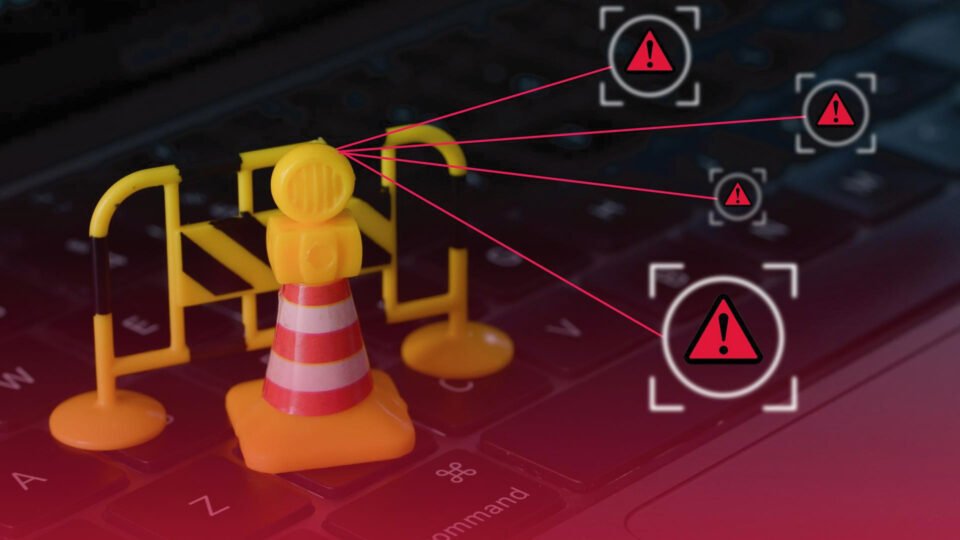From reactive to proactive: AI redefines DevOps monitoring and incident management with speed and precision.
As systems are becoming more complex and interconnected, so are the problems that face DevOps teams. Hybrid infrastructures, microservices, and real-time operations create strains on the old traditional tools, so artificial intelligence enters to redefine how DevOps works.
It is not the automation but thinking of how one would monitor and respond to problems in a changing environment. This change promises to make DevOps processes smarter, faster, and more efficient when it comes to monitoring and incident response.
When Traditional Tools Fall Short
DevOps was always about collaboration and speed optimization. But with multiple clouds, applications, and teams, traditional monitoring solutions rarely suffice. Where static thresholds fail to dynamically maintain an up-to-date adaptation to ever-increasing demands, resolution times get unnecessarily delayed due to manual intervention.
Consider trying to monitor a microservices architecture—where a single failure in one service could cascade across the entire system. Traditional tools can flag the problem too late or miss it entirely. On the other hand, AI shines because it processes enormous volumes of data in real time, detects patterns, and proactively addresses potential failures.
Here, AI really does shine in terms of a shift from reactive to proactive monitoring. It alerts you to problems, but also predicts them, allowing businesses to avoid disruptions altogether.
Smarter Monitoring With AI in DevOps
AI-driven monitoring systems don’t just keep track of metrics. They observe, learn, and adapt-which makes them pretty indispensable for a DevOps team navigating complex infrastructures.
These tools detect anomalies very early on so that even the most subtle deviations from normal operations become apparent. Dynamic thresholds, powered by AI, replace outdated static benchmarks and adapt according to real-time changes in system behavior. AI further simplifies interpretation of complex data by presenting insights through intuitive visualizations, which helps teams make quick decisions.
This capability is a game-changer for organizations running continuous integration and deployment pipelines. It helps detect bottlenecks in the code, optimize workflows, and improve system reliability—all before customers are impacted.
But monitoring is just one half of the equation. What happens when something breaks?
Incident Response Reinvented
Traditional DevOps often involves hours of digging through logs to isolate root causes and deploy fixes. It is a very time-consuming and error-prone approach. AI brings precision and speed to the game for managing incidents.
With AI, root cause analysis is close to instantaneous. Machine learning models parse through log files, configuration data, and performance metrics, zooming in on exactly where the issue is. Recovery processes can automatically be initiated using AI-driven systems, and often resolve incidents far faster than the human brain alone ever could.
For instance, if servers of an e-commerce site are subjected to peak traffic, an AI system will identify bottlenecks in servers within a few seconds and rectify the same, avoiding disconnections in user experiences. Other than rectifying the problem, AI learns from each incident and thus enhances its capability to avoid such problems in the future.
Addressing Concerns About AI
The advent of AI in DevOps has also attracted critics. Questions have arisen about its reliability, bias, and fear of replacing human expertise. But such concerns are mostly based on misunderstandings.
AI does not supplant human judgment but enhances it. By automating mundane, repetitive tasks and providing deep insights, it lets DevOps teams focus on more strategic decisions.
Data quality and bias are issues where organizations must first ensure clean and unbiased datasets so that AI-driven outcomes are as accurate as possible.
Investment and cultural shifts are involved in adopting AI, but the benefits far outweigh the costs: reduced downtime, faster incident resolution, and operational efficiency lead to long-term value.
Real-World Success Stories
There are already a number of industries using AI in DevOps.
Cloud-native companies use AI to optimize resource allocation so that they perform optimally even during peak demand.
Manufacturing firms use AI for predictive maintenance to avoid costly production halts. Cybersecurity teams rely on AI to identify and neutralize threats before they escalate.
These examples show that AI is not just a theory-it is working out in real life.
Strategies for AI Success in DevOps
In order to realize the full benefits of AI, organizations need to introduce it in a thoughtful manner. The right tooling is crucial; solutions like Splunk, Dynatrace, and many others offer customized features specifically for DevOps environments.
Integration should be smooth and seamless and augment existing workflows rather than disrupt them. Of equal importance is the development of expertise within teams to combine the strengths of AI with human intuition. When deployed strategically, AI can take DevOps to levels of efficiency and effectiveness never known before.
Looking Toward the Future
AI in DevOps has a future that is extremely promising. Consider systems that will heal themselves with minimal human input, detecting issues and rectifying them. Predictive analytics will improve dramatically in helping companies predict and act on possible threats before they even arise.
With the growth of AI, there will come an improvement in the communication bridge between technical teams and business leaders. This is the way through which collaboration and alignment will occur in organizations, thereby leading them into innovation and operational excellence.
Explore AITechPark for the latest advancements in AI, IOT, Cybersecurity, AITech News, and insightful updates from industry experts!

